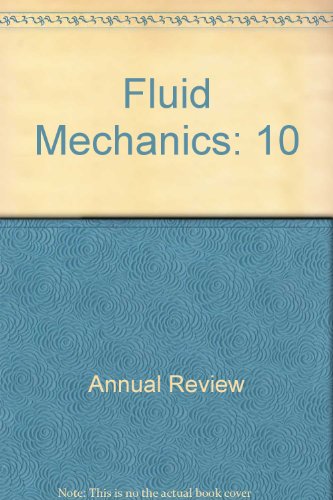受量子力学数学方法启发的线性流动分析
IF 30.2
1区 工程技术
Q1 MECHANICS
引用次数: 12
摘要
自20世纪20年代诞生以来,量子力学一直在推动和推进线性算子的分析。在这项工作中,它对光谱理论中复杂数学工具的发展做出了重大贡献。这些工具中的许多还进入了经典流体力学,实现了优雅有效的解决方案策略,以及对复杂流体行为的物理见解。这篇综述为协同采用经典曲目之外的数学技术提供了支持性证据,既用于流体研究,也用于培养未来的流体动力家。通过了解量子力学的数学技术和方法,可以获得对实际问题的更深入的理解、令人信服的解决方法和替代解释。讨论了谱分析、级数展开、对称性考虑和积分变换等技术,并从量子力学的角度介绍了声学和不可压缩流的应用。《流体力学年度评论》第55卷预计最终在线出版日期为2023年1月。请参阅http://www.annualreviews.org/page/journal/pubdates用于修订估算。本文章由计算机程序翻译,如有差异,请以英文原文为准。
Linear Flow Analysis Inspired by Mathematical Methods from Quantum Mechanics
Since its birth in the 1920s, quantum mechanics has motivated and advanced the analysis of linear operators. In this effort, it significantly contributed to the development of sophisticated mathematical tools in spectral theory. Many of these tools have also found their way into classical fluid mechanics and enabled elegant and effective solution strategies as well as physical insights into complex fluid behaviors. This review provides supportive evidence for synergistically adopting mathematical techniques beyond the classical repertoire, both for fluid research and for the training of future fluid dynamicists. Deeper understanding, compelling solution methods, and alternative interpretations of practical problems can be gained by an awareness of mathematical techniques and approaches from quantum mechanics. Techniques such as spectral analysis, series expansions, considerations on symmetries, and integral transforms are discussed, and applications from acoustics and incompressible flows are presented with a quantum mechanical perspective. Expected final online publication date for the Annual Review of Fluid Mechanics, Volume 55 is January 2023. Please see http://www.annualreviews.org/page/journal/pubdates for revised estimates.
求助全文
通过发布文献求助,成功后即可免费获取论文全文。
去求助
来源期刊
CiteScore
54.00
自引率
0.40%
发文量
43
期刊介绍:
The Annual Review of Fluid Mechanics is a longstanding publication dating back to 1969 that explores noteworthy advancements in the field of fluid mechanics. Its comprehensive coverage includes various topics such as the historical and foundational aspects of fluid mechanics, non-newtonian fluids and rheology, both incompressible and compressible fluids, plasma flow, flow stability, multi-phase flows, heat and species transport, fluid flow control, combustion, turbulence, shock waves, and explosions.
Recently, an important development has occurred for this journal. It has transitioned from a gated access model to an open access platform through Annual Reviews' innovative Subscribe to Open program. Consequently, all articles published in the current volume are now freely accessible to the public under a Creative Commons Attribution (CC BY) license.
This new approach not only ensures broader dissemination of research in fluid mechanics but also fosters a more inclusive and collaborative scientific community.

 求助内容:
求助内容: 应助结果提醒方式:
应助结果提醒方式:


